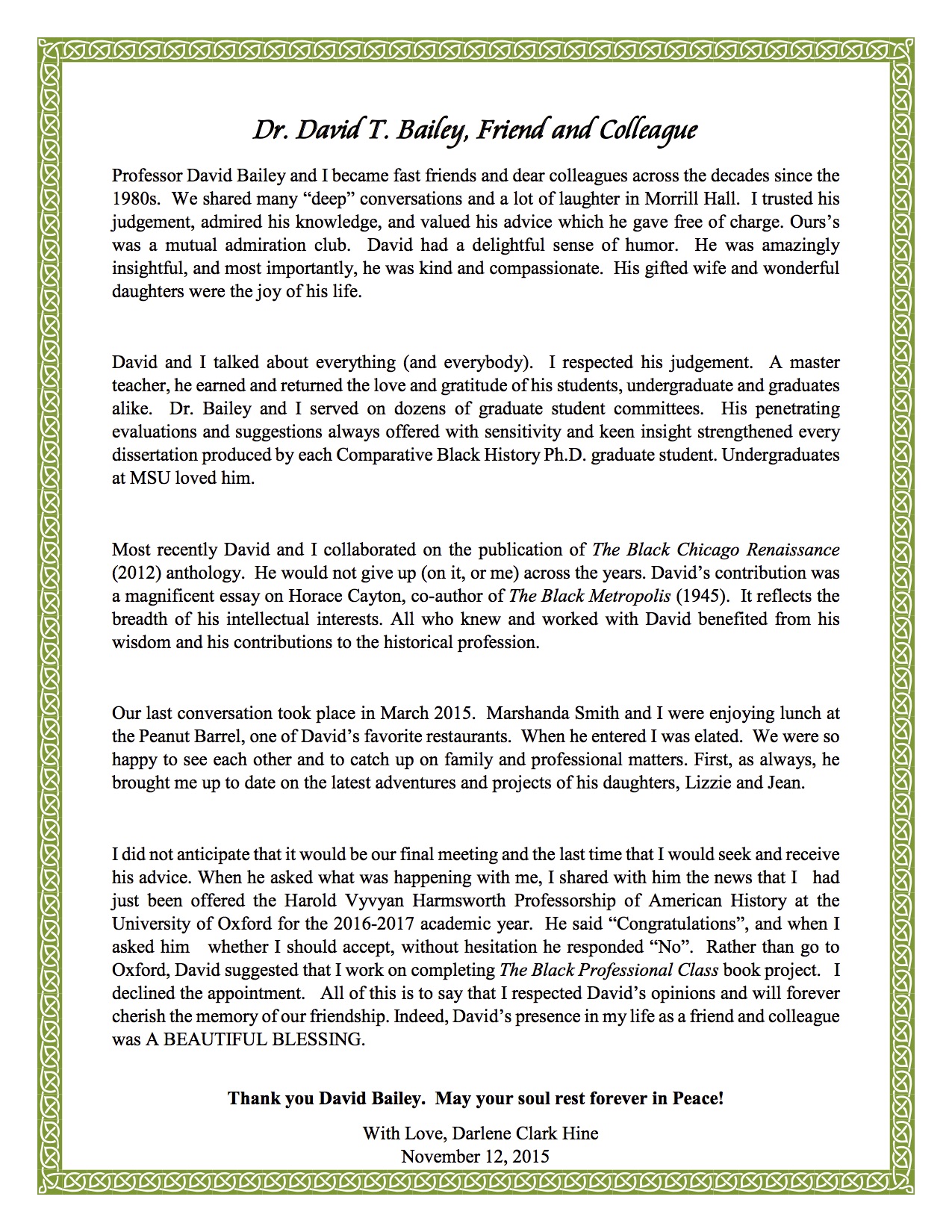I’ve been struggling to remember the first time I met Dr. Bailey. It really bothers me that I can’t remember now, since I don’t think I’ll ever be able to forget the way he left us. But I suppose, like it is for the cohorts of graduate students who had the great fortune to spend our time in Morrill Hall, Bailey was just a given once I started here in 2012. His office in Morrill Hall, with those piles upon piles of book, was the stuff of legend (as was his presence at department talks) and we were all keen to see where all the books would go when he moved into the smaller office in Old Horticulture. But even though it was smaller, that office was just as warm and inviting as the Morrill office had been.
Every time I entered Old Horticulture, I was so glad to see that Dr. Bailey’s door was open. Any topic was open for discussion. I relished the time spent with him, talking about every topic imaginable. When I first told him that I was from Nashville, we spent a great deal of time talking about country music, but also about the history of the civil rights movement in Tennessee and the exceptional black universities that proliferated in the Athens of the South. We also spent an incredible amount of time talking about South Africa, the country we both loved so much. Even though it wasn’t his field, Dr. Bailey taught me so much about South Africa and introduced me to books and ideas that I’m sure I will continue grappling with for the rest of my career. We also spent a significant amount of time discussing his novels. One day, I walked by and asked him what he was working on, to which he responded, “I just blew up the South.” He was working on one of his novels and I settled into his chair to listen to his newest plot, in awe of a man who was such a phenomenal scholar, teacher, and creative mind. That hallway is so quiet now, as others have commented.
Dr. Bailey was not my advisor or a member of my committee or connected to my program of study in any official capacity, but he was a great friend to me. Last summer, I was really struggling with whether or not pursuing a PhD was still the right thing for me. I hadn’t received a grant that I was relying on to research my dissertation and I had begun to think that if I never got a grant, I was really going to be in trouble. I came to campus on a mission to find Dr. John Waller and speak to him, hoping that I might get some clarity as to what I should do. En route, I came across Dr. Bailey, reading outside Old Horticulture in the lovely midday sun. I told him I was looking for Dr. Waller and he asked me, “Why?.” I told him that I was feeling pretty low and like I had no clue what I was doing and that Dr. Waller was the person I usually went to when I was feeling like that. Dr. Bailey looked down, paused for a moment, then looked up at me and said, “Haven’t you figured out that you know what you’re doing yet?” That comment really stuck with me and when I finally got the grant to do my research later that summer, Dr. Bailey was one of the first people I sought out to tell. And his response was, “Well, that’s no surprise. I knew you would.”
I’m certainly not the only student who was changed by their interactions with Dr. Bailey. I am one among the thousands. And this past year, watching him teach the students in his 2000 Election Seminar, it’s not hard to imagine why. I watched as he nurtured his students and fostered their creativity, discovering each of their strengths in such subtle ways that I wish I had spent more time talking to him about his teaching. I feel profoundly honored to have simply watched him teach and I am so inspired by his passion and fierce commitment to his students. I will likely spend the rest of my career trying to emulate him, though I am sure my efforts will pale in comparison to his. Dr. Bailey was such a great example in so many ways, as others have put so beautifully.
I miss him already and I’ll never forget my great friend. Hamba kahle, Dr. Bailey.
